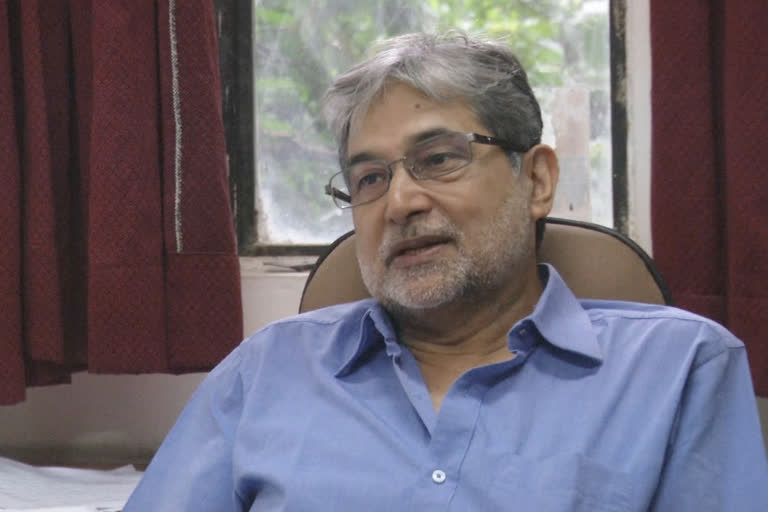New Delhi: Jawahar Lal Nehru University in New Delhi, where Indian economist Abhijit Banerjee attained his master's degree celebrated on Monday after Banerjee was awarded this year's Nobel Prize in Economics.
Some of his fellow students now teach at the same institution.
Praveen Jha, now a professor of developmental economics at JNU, expressed delight at the news that an Indian had been honoured in this way.
Jha was proud that JNU had contributed towards Banerjee's efforts to make the world a better place.
Expressing his happiness, Jha said, "His master's programme in JNU is something which I am sure contributed to his overall kind of intellectual framing, make-up etc and at least in some small measure contributed towards some of the basic intellectual concerns which he has sort of pursued subsequently, in particular in the area of poverty alleviation, in the area of how can the world be made a better place."
Banerjee, Esther Duflo and Michael Kremer - now at the Massachusetts Institute of Technology and Harvard University - were honoured for groundbreaking research into what works and what doesn't in the fight to reduce global poverty.
They revolutionised developmental economics by pioneering field experiments - something like pharmaceutical companies' drug tests - that generate practical insights into how poor people respond to educational, health care and other programmes meant to lift them out of poverty.
Their work in rural Kenya and in India, for instance, found that providing more textbooks, school meals and teachers didn't do much to help students learn more.
Making the schoolwork more relevant to students, working closely with the neediest students and holding teachers accountable - by putting them on short-term contracts, for example - were more effective in countries where teachers often don't bother showing up for work.
The winners' recommended programme of remedial tutoring is now benefiting five million Indian children, the academy said.
Banerjee and the others found that providing free health care makes a big difference: Only 18% of parents gave their children de-worming pills for parasitic infections when they had to pay for them - even though the heavily subsidized price was less than 1 US dollar.
But 75% gave their kids the pills when they were free. The World Health Organisation now recommends that the medicine be distributed for free in areas with high rates of parasitic worm infections.
Banerjee and others also found that mobile vaccination clinics in India dramatically increased the immunisation rates compared to traditional health centres that often went unstaffed.
The immunisation rate rose further if parents received a bag of lentils as a bonus for vaccinating their children.
Praveen Jha believes Banerjee's time at JNU contributed towards his later work.
"His master's programme in JNU is something which I am sure contributed to his overall kind of intellectual framing," he said.
Read also: Watch: Nobel laureates Abhijit Banerjee and his wife Esther Duflo's reaction



